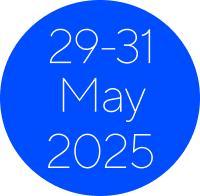Chair: Hanan Khalil (Qatar)
Speakers: Tamine Capato (Brazil), Natalie Allen (Australia)
- Exploring the role of motor learning in gait retraining in Parkinson’s disease: Participants will advance their understanding of the timing of physiotherapy interventions, including gait retraining, and discuss gait re-training techniques that promote motor learning and manage freezing of gait. A clinical example using video self-modelling, implementable with and without virtual reality headsets, will be presented.
Balance and falls in PD: Objective: To describe the physiology of balance control, the risk factors and mechanisms contributing to falls in Parkinson’s Disease, potential physiotherapy and rehabilitation interventions, and the current gaps and limitations of technology, including wearables, in assessing and managing balance impairments and fall risk in PD. - Addressing innovative management in gait and balance in Movement Disorders (Chorea, Dystonia, Ataxia). Participants will improve their understanding of innovative management strategies and the complexities involved in movement disorders. Through clinical videos, examples will be provided to demonstrate how integrating technology can support gait treatments and personalized physiotherapy interventions.
Motor learning impairments, gait disturbances, and balance deficits are key challenges faced by individuals with Parkinson’s Disease (PD) and other movement disorders. This clinical seminar will provide physiotherapists and rehabilitation professionals with contemporary strategies to address these challenges, while considering the complexity and variability of movement disorders.
The session will unfold through three interconnected themes:
- Gait Retraining and Freezing of Gait in Parkinson’s Disease
We will begin by exploring how principles of motor learning and neuroplasticity can be applied to enhance gait rehabilitation in PD. Emphasis will be placed on designing interventions that optimize timing and learning, with a special focus on addressing freezing of gait. Practical tools, such as video self-modelling and VR-based strategies, will be showcased through clinical examples to demonstrate their application in both high- and low-resource settings. - Balance Dysfunction and Falls: Assessment and Intervention
The second part will examine the mechanisms underlying balance impairments and falls in PD. We will discuss clinical patterns, common risk factors, and how these translate into fall events. Evidence-based physiotherapy interventions aimed at improving balance and reducing fall risk will be reviewed. In addition, we will critically discuss the potential and limitations of using wearable technologies to assess and monitor balance and fall risk during daily activities. - Innovative Approaches for Gait and Balance Challenges in Movement Disorders Beyond PD
In the final section, we will expand the discussion to address gait and balance impairments in other movement disorders, including Chorea, Dystonia, and Ataxia. Through clinical videos and case discussions, participants will see how technology and creative therapeutic strategies can be combined to enhance intervention effectiveness. Special attention will be given to tailoring these strategies to meet individual patient needs and to facilitate behavior change, maximizing long-term outcomes.
Session delivered by: International Neurological Physiotherapy Association
- Johansson ME, Cameron IGM, Van der Kolk NM, de Vries NM, Klimars E, Toni I, Bloem BR, Helmich RC. Aerobic Exercise Alters Brain Function and Structure in Parkinson’s Disease: A Randomized Controlled Trial. Ann Neurol. 2022 Feb;91(2):203-216. doi: 10.1002/ana.26291. Epub 2022 Jan 19. PMID: 34951063; PMCID: PMC9306840.
- van der Kolk NM, de Vries NM, Kessels RPC, Joosten H, Zwinderman AH, Post B, Bloem BR. Effectiveness of home-based and remotely supervised aerobic exercise in Parkinson’s disease: a double-blind, randomised controlled trial. Lancet Neurol. 2019 Nov;18(11):998-1008. doi: 10.1016/S1474-4422(19)30285-6. Epub 2019 Sep 11. PMID: 31521532.
- Radder DLM, Lígia Silva de Lima A, Domingos J, Keus SHJ, van Nimwegen M, Bloem BR, de Vries NM. Physiotherapy in Parkinson’s Disease: A Meta-Analysis of Present Treatment Modalities. Neurorehabil Neural Repair. 2020 Oct;34(10):871-880. doi: 10.1177/1545968320952799. Epub 2020 Sep 11. PMID: 32917125; PMCID: PMC7564288.
- Osborne JA, Botkin R, Colon-Semenza C, et al. Physical Therapist Management of Parkinson Disease: A Clinical Practice Guideline from the American Physical Therapy Association. Physical therapy. 2021.
- Capato TTC, de Vries NM, IntHout J, Barbosa ER, Nonnekes J, Bloem BR. Multimodal Balance Training Supported by Rhythmical Auditory Stimuli in Parkinson’s Disease: A Randomized Clinical Trial. J Parkinsons Dis. 2020;10(1):333-346. doi: 10.3233/JPD-191752. PMID: 31884492; PMCID: PMC7029328.
- Package of interventions for rehabilitation. Module 3. Neurological conditions. 2023, World Health Organization: Geneva.
- Keus S, M.M., Graziano M, et al., European physiotherapy guideline for Parkinson’s disease. 2014, KNGF/ParkinsonNet: The Netherlands
- Capato TTC, Chen J, Miranda JA, Chien HF. Assisted technology in Parkinson’s disease gait: what’s up? Arq Neuropsiquiatr. 2024 Jun;82(6):1-10. doi: 10.1055/s-0043-1777782. Epub 2024 Feb 23. PMID: 38395424; PMCID: PMC10890908.
- Geroin C, Artusi CA, Nonnekes J, Aquino C, Garg D, Dale ML, Schlosser D, Lai Y, Al-Wardat M, Salari M, Wolke R, Labou VT, Imbalzano G, Camozzi S, Merello M, Bloem BR, Capato T, Djaldetti R, Doherty K, Fasano A, Tibar H, Lopiano L, Margraf NG, Moreau C, Ugawa Y, Bhidayasiri R, Tinazzi M; International Parkinson and Movement Disorders Society Task Force on Postural Abnormalities. Axial Postural Abnormalities in Parkinsonism: Gaps in Predictors, Pathophysiology, and Management. Mov Disord. 2023 May;38(5):732-739. doi: 10.1002/mds.29377. Epub 2023 Apr 20. PMID: 37081741.
- Quinn L, Kegelmeyer D, Kloos A, Rao AK, Busse M, Fritz NE. Clinical recommendations to guide physical therapy practice for Huntington disease. Neurology. 2020 Feb 4;94(5):217-228. doi: 10.1212/WNL.0000000000008887. Epub 2020 Jan 6. PMID: 31907286; PMCID: PMC7080285.
See the 11 clinical seminars to be presented at congress.
Find out who the key speakers at congress will be.
View the registration fees and register for congress.




